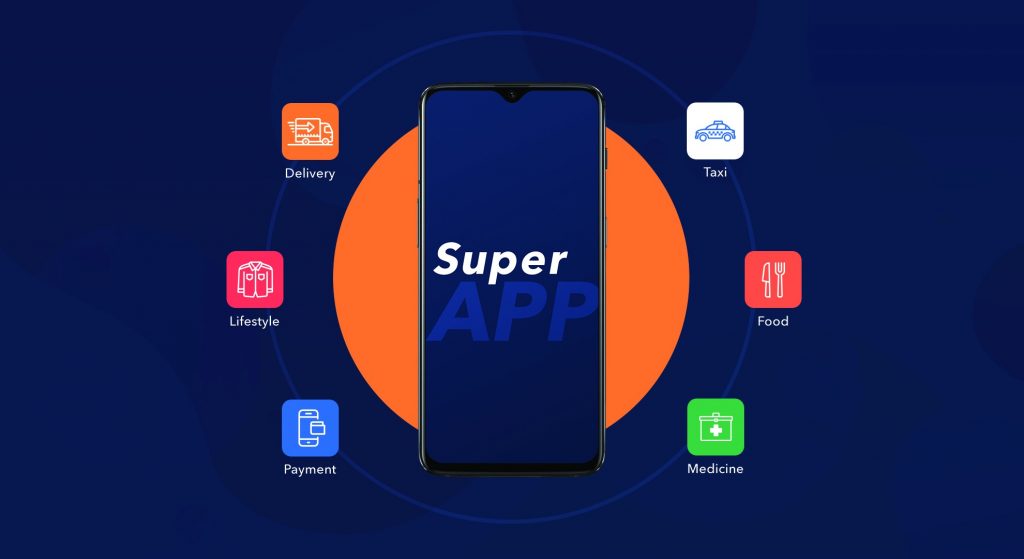Unlike single-purpose apps that have dominated the market for the past decade, super apps span multiple verticals, creating a “one-stop-shop” app where users can perform many different tasks. Super apps like WeChat have become quite popular, especially in Asia. Many of the most popular super apps in Asia started with a single goal of encouraging uptake and mass use to cover a mix of daily activities in a single tool. In this way, it is aimed to create a super app that allows users to take on multiple tasks without changing them.
There is no denying the superiority of WeChat when it comes to super apps. Originally launched as a communication app similar to WhatsApp, it has since grown into an integrated platform for social networking, ride-hailing, meal delivery, restaurant reservations, payments, and gaming, establishing itself as the archetypal super app.
The super app WeChat also has a diverse user base that appeals to everyone, from business people looking to generate leads to teens interacting with friends, to restaurant owners who use the platform to process digital payments and collect reviews.

WeChat, its Chinese counterpart Alipay, and Indian super app Paytm have reached a level of sophistication where they allow third parties to offer mini-programs or “apps” in their apps. Brands like L’Oréal or Nike are creating these mini-programs to market their products directly to large super app user bases. Gaming companies have also started to release scaled-down versions of their products, making it even more common for local stores to use mini-programs in China.
The unique selling point of a super app that centralizes so many functions is that you can complete multiple tasks or actions in one place. You don’t have to switch between programs or providers to get things done. This also means fewer registrations, fewer payment details provisioning, and a reduction in friction overall. If you need a haircut, you can find a hairdresser, make an appointment, and pay – all in the same app. The same goes for everything from plumbers to yoga instructors, tailors to teachers, and more.
What are the best super apps on the market?
In addition to the aforementioned WeChat, Alipay, and Paytm, there are a number of prominent super apps in Southeast Asia. Gojek and Grab have evolved into all-in-one services that let you manage everything from ride-hailing apps, cleaning to insurance. In Vietnam, the super app Zalo can be used to apply for visas and other official documents. Although Line (Japan) and KakaoTalk (Korea) actually run on an interconnection model, they can also be considered super apps. All these super apps are perfectly positioned: WeChat and Alipay have exceeded one billion users, and Zalo has crossed the 100 million mark. Demonstrating their impressive market potential, Grab, Gojek, and Paytm raised nine billion, four billion, and three billion dollars respectively.
Are super apps only popular in Asia?
While Google, Facebook, and Amazon were less dominant in Asia and completely absent in China, super-app developers were certainly better positioned to emerge as market leaders. Asian markets are also typically mobile-first, meaning super apps hardly need to compete with existing desktop apps. In Cambodia and Vietnam, where banking infrastructure is lacking, many consumers are switching from direct cash to mobile payments. Super apps have served to undermine the informal economies that exist in these markets, where they enable the digitization of corner shops, street food startups, and bike taxis.

Investors are now looking to African markets that aim to set up payment and ride-hailing apps to build an infrastructure and user base to build new super apps. Examples include Opay/ORide and Quickteller in Nigeria, SafeBoda and Tingg in Kenya, and the MTN-led Ayoba app in South Africa. Starting out as a delivery service in Latin America, Rappi is close to becoming a super app.
How is the concept of super app positioned in the West?
Digital players entrenched in the West are implementing strategies that can be considered a version of the super app concept. Mark Zuckerberg stated that he wants Facebook, Instagram, and WhatsApp to function as an interconnected platform for private services. In India, Facebook has also collaborated with Reliance Industries Limited to implement payment facilities in WhatsApp. Uber has been upfront about its ambitions to be a super app, confirmed by its recent acquisition of Careem, a company striving to be the Middle East super app. Amazon and Airbnb have also expressed interest in pursuing a similar path. The development of these apps also presents an interesting line of historical thinking.
What do super apps mean for Adjust?
Super apps have the potential to change the mobile marketing landscape. On the one hand, they narrow the playing field for single-purpose apps. The downside to this is that established businesses and single-purpose apps can lose their user base. However, it offers smaller companies the opportunity to enter the mobile market through mini-programs or apps that are much easier to develop and therefore more cost-effective.
Game companies have already started releasing limited versions of their games as mini-programs in super apps. This essentially acts as a new user acquisition flow, where mini-program users eventually become full-application users.
Super apps also change the nature of user acquisition more broadly. For many companies, the first conversion will no longer be a setup. Users will start using their app as they are already available as a mini-program or app in the super app. Since the users are already defined, the records will also become invalid in this context. The loss must also be redefined, as there is no such thing as removal in the context of a super app.
It also remains to be seen how much ad inventory super apps will provide. WeChat and Alipay allow advertisers to create profiles, but products marketed are only sold within the super app, not through an external app.
Whichever way you look at it, super apps are a force to be reckoned with on a business-level and conceptual basis. The entire mobile market will be reshaped if western markets follow the same path, or even steps towards centralized, friction-reducing app models.
Source: Adjust





